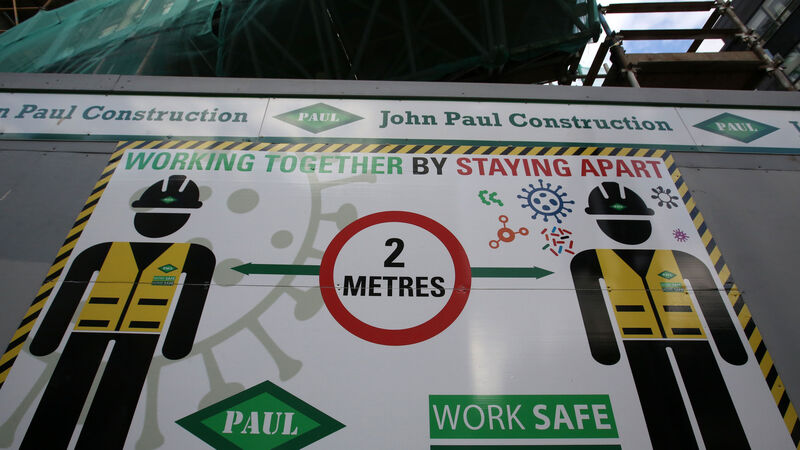House prices set to surge due to slump in new builds

The ESRI forecasts that the number of new home completions will drop back to 2017 levels, with just 15,000 homes completed this year and 16,000 next year due to the construction shutdown. File picture: Sam Boal/RollingNews.ie
House prices are set to surge due to a slump in new builds and and billions of euros in household savings accumulated due to the pandemic.
That, in turn, could see the Central Bank clamping down on mortgage lending, the Economic and Social Research Institute (ESRI) has warned.











